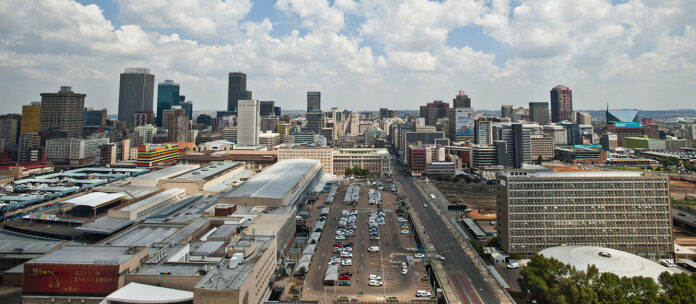The words with painful allusions that Joburg city could be crumbling, and becoming a wasteland, are not far-fetched – they are a reality facing the nation.
To clarify the point, the city is an economic home to millions of South Africans. That it is disintegrating at the seams under the weight of debris, neglect and misgovernance should be a concern for all South Africans.
The words of sadness, reconstructed, read as follows: “Johannesburg city is characterised by decaying water systems, marked by crumbling and unsteady buildings disintegrating at the seams, broken roads, in-operative traffic lights and inadequate service delivery, ought to shock anyone who walked the beautiful streets of the great city 31 years earlier.”
If you read the words and digest what their message may be conveying, you may be bound to wonder what the authors of the ANC document, “Ready to govern”, might be thinking when they survey the city, which has become a pigsty.
More telling, and with a tinge of irony, the city is home to Luthuli House, the ANC’s headquarters – a political entity that has been the governing party since the dawn of democracy in 1994.
Today the city has been turned into a huge drug trading enterprise – a city of muggings – and a city that houses a huge foreign business community, using the city’s infrastructure and buildings, yet shamelessly evading through a sleight of hand tax payment obligations to the
host country.
In 1992, the ANC adopted the document, “Ready to govern”, flowing from the resolutions taken at the national conference in Durban the previous year.
The document instilled hope and confidence in the African people that under the ANC government, cities such as Joburg and all other South Africa’s cities, towns and villages would ascend new heights of beauty and excellence and become sites of good service delivery.
Some of the objectives of the document sought to underscore, among others, the right of all South Africans to political and economic self-determination, to overcome the legacy of inequality and injustice created by colonialism and apartheid; to develop a sustainable economy and state infrastructure that will progressively improve the quality of life of all South Africans; to encourage a deep sense that all South Africans belong together; and to coexist with the knowledge that they now enjoyed a sense of freedom and security.
The point to be made is that even with guaranteed rights enshrined in the Constitution, a Bill of Rights becomes uselessly unhelpful when communities are made to live in conditions of squalor and degradation and threats of looming violence, as is the case with what Johannesburg has become – a far cry from the promises contained in the “Ready to Govern” document.
Over the years, it has become obvious that the city’s political leaders have seriously defocused their attention on improving the quality of life and focused more on their own well-being.
Even today, as we write, the city’s infrastructure continues to deteriorate. Deterioration affects not only the infrastructure but also the well-being of society and communities that live and work in the city.
In the end, with the local government elections scheduled for 2026, it is incumbent on the city’s ratepayers, through their vote, to determine who to vote for. It may be that a reliable ratepayers association might provide answers to the crisis facing the city.
Also true, and perhaps viable, with the present crisis of misgovernance of the city persisting, an opportunity to resort to the courts might be opportune.
The document developed by the ANC in 1992, states that the Constitutional Court could be used to enforce “and uphold the fundamental rights and active role in ensuring environmental protection in the public interest”.
The news that the Gauteng government could be on the verge of bankruptcy and that corruption could be taking place at the provincial department of health, ought to be a source of great concern, which, given the symbiotic relationship between the provincial government and the city, may negatively impact on the state of decay taking place in the city.
- Mdhlela is an independent journalist, an Anglican priest, an ex-trade unionist, and former editor of the South African Human Rights Commission journals



